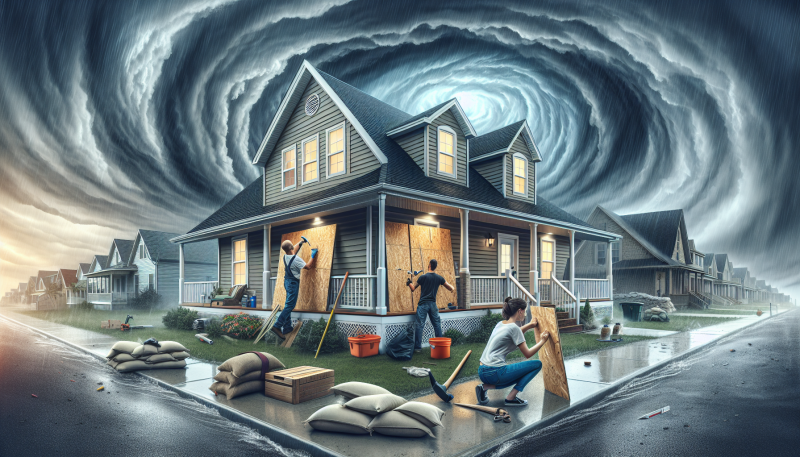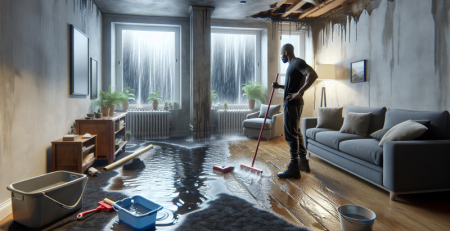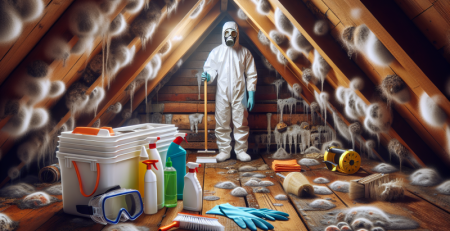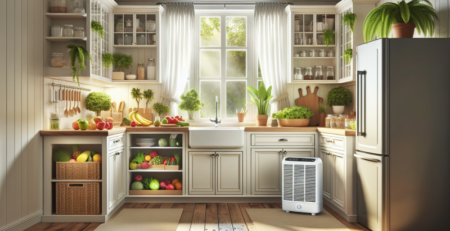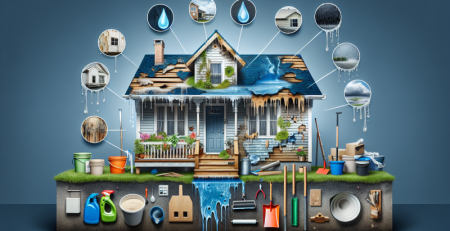How to Protect Your Home During a Hurricane
As hurricane season approaches, homeowners must take proactive steps to safeguard their properties from potential storm damage. Understanding how to protect your home during a hurricane is crucial for minimizing risks and ensuring the safety of your family and belongings. At Kraus Restoration, NJ’s leaders in water damage restoration, we are dedicated to helping homeowners navigate the challenges posed by severe weather. Our mission is to assist those who have experienced property damage due to water, mold, fire, or smoke, providing professional 24/7 emergency services to restore homes and lives back to normal. In this guide, we will explore essential strategies for hurricane preparedness, including securing windows and doors, creating an emergency kit, and understanding the importance of proper drainage. With our expertise and commitment to customer satisfaction, you can feel confident in your ability to protect your home and mitigate damage during a hurricane.
Essential Preparations Before the Storm Hits
Preparing your home for a hurricane is a critical step in safeguarding your property and ensuring the safety of your family. Hurricanes can bring devastating winds, heavy rainfall, and flooding, making it essential to take proactive measures before the storm hits. Here are some essential preparations you should consider to protect your home effectively.
First and foremost, it is vital to stay informed about the storm’s trajectory and intensity. Monitor local weather reports and heed any warnings issued by authorities. The National Hurricane Center provides real-time updates and forecasts that can help you make informed decisions.
Next, assess your property for vulnerabilities. Walk around your home and identify areas that may be susceptible to wind damage or flooding. This includes checking the roof for loose shingles, ensuring that gutters are clear, and securing any loose items in your yard that could become projectiles in high winds.
One of the most effective ways to protect your windows and doors is by installing storm shutters or boarding them up with plywood. According to the Federal Emergency Management Agency (FEMA), windows are one of the most vulnerable parts of a home during a hurricane, and protecting them can significantly reduce the risk of damage. If you opt for plywood, ensure it is cut to size ahead of time and stored in an accessible location.
Additionally, consider reinforcing your garage door, as this is another area that can fail under hurricane conditions. A reinforced garage door can withstand higher winds and prevent water from entering your home.
It is also crucial to prepare an emergency kit that includes essential supplies. FEMA recommends having at least a three-day supply of food and water for each person in your household, along with medications, flashlights, batteries, and a first aid kit. Don’t forget to include important documents, such as insurance policies and identification, in a waterproof container.
Another important preparation step is to secure your outdoor furniture and other items that could be blown away. Bring in or tie down patio furniture, grills, and decorations. This not only protects your belongings but also prevents them from becoming dangerous projectiles that could harm others.
If you live in a flood-prone area, consider elevating electrical appliances and utilities above potential flood levels. This includes moving electrical outlets, switches, and appliances to higher ground to minimize water damage.
In the event of a power outage, having a generator can be a lifesaver. Ensure that your generator is in good working condition and that you have enough fuel to last several days. Remember to operate it outside to avoid carbon monoxide poisoning.
Finally, make a communication plan with your family and neighbors. Establish a meeting point and ensure everyone knows how to reach each other in case of evacuation. Share important contact information and discuss your plans in advance.
By taking these essential preparations seriously, you can significantly reduce the risk of damage to your home and ensure the safety of your loved ones during a hurricane. Remember, the key to effective hurricane preparedness is to act early and stay informed. For more information on how to protect your home and family during a hurricane, visit Kraus Restoration.
In conclusion, being proactive and prepared can make all the difference when facing a hurricane. By following these guidelines, you can help ensure that your home remains safe and secure, allowing you to weather the storm with confidence. For additional resources on home safety and restoration services, check out our services page or contact us for expert advice.
Effective Strategies for Securing Your Property
When preparing your home for a hurricane, implementing effective strategies to secure your property is crucial for minimizing damage and ensuring the safety of your family. Hurricanes can bring strong winds, heavy rain, and flooding, which can severely impact homes and properties. Here are several strategies to help you protect your home during these severe weather events.
First and foremost, it is essential to assess your property and identify vulnerable areas. This includes checking windows, doors, and the roof for any weaknesses. Installing storm shutters or boarding up windows with plywood can provide an extra layer of protection against flying debris. Ensure that all doors are securely fastened and consider reinforcing garage doors, as they are often the first to fail during high winds.
Next, landscaping plays a significant role in hurricane preparedness. Trim trees and remove any dead branches that could become projectiles in strong winds. Additionally, consider relocating or securing outdoor furniture, decorations, and other items that could be blown away. These items can not only be damaged but can also cause harm to your home or neighbors if they become airborne.
Another critical aspect of securing your property is to ensure that your drainage systems are functioning properly. Clear gutters and downspouts of debris to prevent water from pooling around your home. If you live in a flood-prone area, consider installing a sump pump or flood barriers to help manage excess water. This proactive approach can significantly reduce the risk of water damage during heavy rainfall.
In addition to physical preparations, having an emergency plan in place is vital. Ensure that all family members are aware of evacuation routes and have a designated meeting point. Keep an emergency kit stocked with essential supplies, including food, water, medications, and important documents. This preparedness can make a significant difference in the event of an evacuation.
Furthermore, consider investing in a generator to provide backup power during outages. This can be particularly useful for keeping essential appliances running, such as refrigerators and medical equipment. Make sure to follow safety guidelines when using generators to avoid carbon monoxide poisoning.
Finally, after the storm has passed, it is important to assess any damage and take appropriate action. Document any damage with photos for insurance purposes and contact your insurance provider to report claims. If you experience significant water damage, it is advisable to seek professional help for water cleanup and restoration services to prevent mold growth and further damage.
By implementing these strategies, you can significantly enhance the safety and security of your property during a hurricane. Being proactive and prepared not only protects your home but also provides peace of mind during these unpredictable weather events. For more information on how to safeguard your home and the services available, visit our about page or explore our services for comprehensive solutions tailored to your needs.
In conclusion, protecting your home during a hurricane requires careful planning and proactive measures. By assessing your property, reinforcing windows and doors, securing outdoor items, and creating an emergency kit, you can significantly reduce the risk of damage and ensure the safety of your family. Additionally, staying informed about weather updates and having an evacuation plan in place will further enhance your preparedness. Remember, the key to weathering a hurricane lies in taking action before the storm hits. By following these guidelines, you can safeguard your home and loved ones, giving you peace of mind during one of nature’s most powerful events. Stay safe and be prepared!
